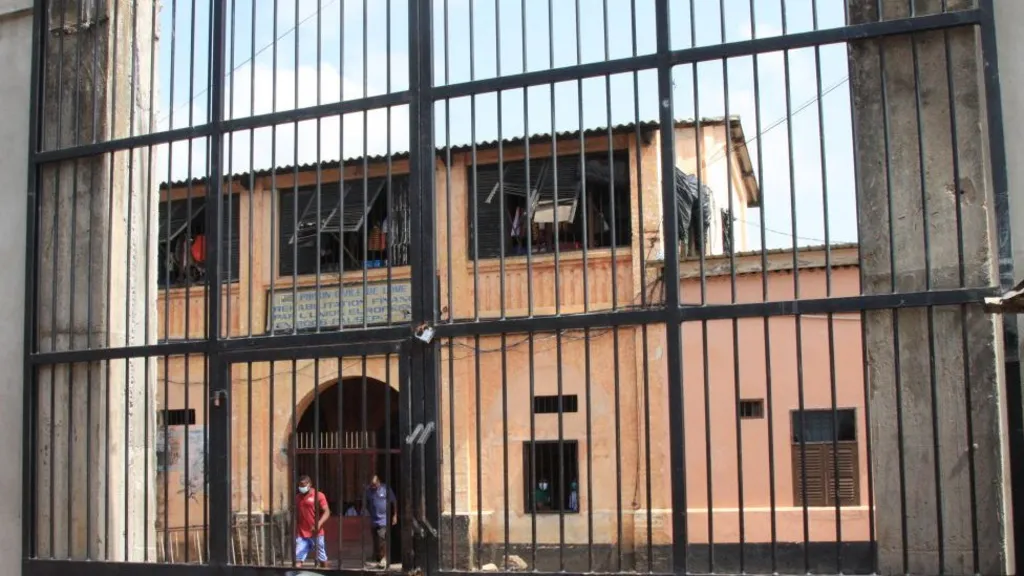A 74-year-old politician with “critical” health issues is in jail as Togolese authorities crack down on dissent, an spokesperson for the nation’s opposition coalition says.
Tensions heightened after Togo’s parliament passed a bill proposing huge changes to the political system.
Elections scheduled for 20 April were later postponed.
Five opposition activists were arrested for campaigning against the reforms, a DMK coalition spokesperson said.
Under the bill passed on 25 March, the president of the West African nation would become a symbolic position selected by parliament, rather than being directly elected.
Executive power would instead go to a prime minister.
Opposition parties have rejected the reform, arguing that it could allow President Faure Gnassingbé to stay in power.
He succeeded his father, Gnassingbé Eyadéma, who died in 2005 after ruling the country with an iron fist for 38 years.
Members of the DMK (Dynamique Monseigneur Kpodzro) were arrested last week after publicly campaigning against the reform, spokesperson Ben Djagba.
He said there were concerns about the health of Dovi Amouzou, a 74-year-old politician, who is among the five detainees.
“Her heart conditions are worrisome as she has ongoing heart-related issues and is under constant care by her physician. Since her detention, she no longer has access to her doctor,” Mr Djagba said.
The five politicians have been held on “public order charges”, their lawyer, Elom Kpade, was quoted as saying by press agency AFP.
French broadcaster RFI reported that the five have been taken to the civil prison in the capital, Lomé.
Public prosecutor Talaka Mawama said an investigation had been opened into “individuals caught distributing leaflets and chanting slogans inciting popular revolt” during an unauthorised protest.
Mr Djagba told the BBC that these were “bogus allegations”.
No new date has been given for the elections.
The Conference of Togolese Catholic bishops has urged President Gnassingbé not to sign the constitutional changes into law, citing the need for “broad consultation and a more inclusive national debate”.
Opposition parties boycotted Togo’s previous elections and are poorly represented in Togo’s parliament.
As a result, the constitution change was approved almost unanimously – with only one legislator voting against and one other abstaining.
The presidency said on Wednesday that the delay was to allow for “consultations” over the contested constitutional changes.
